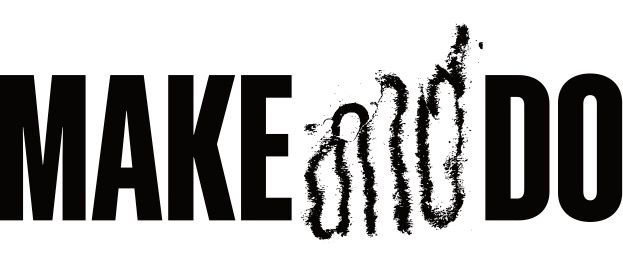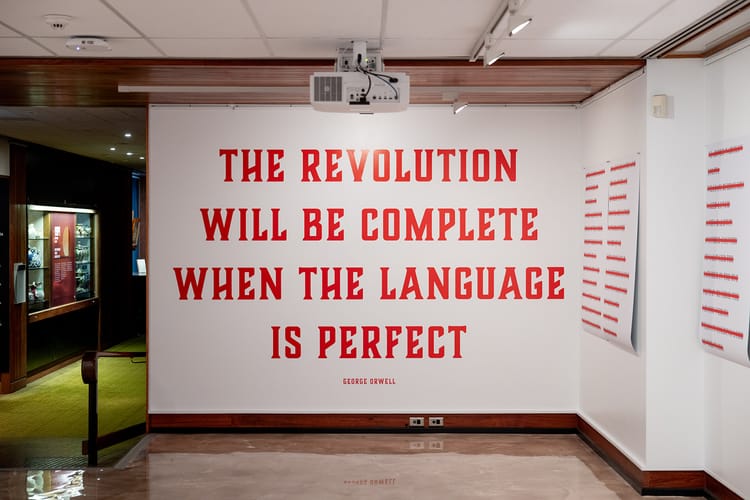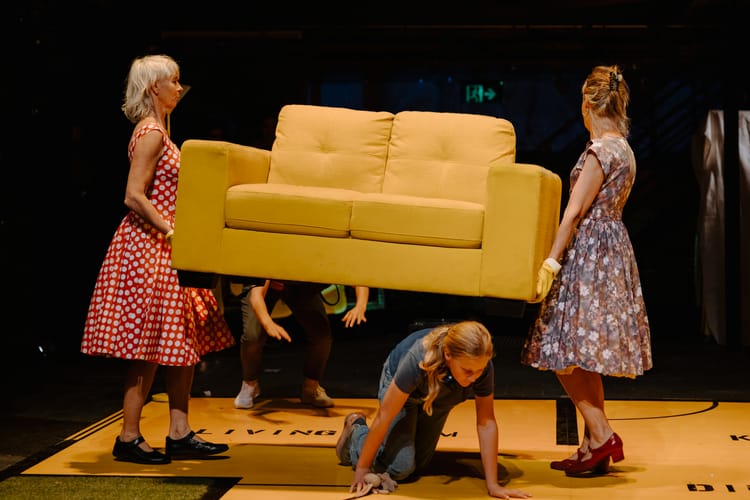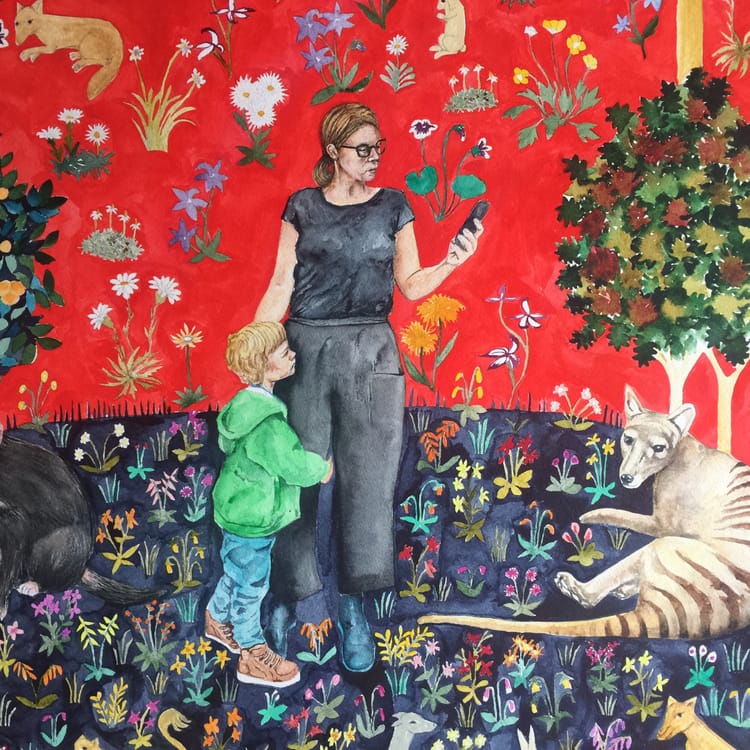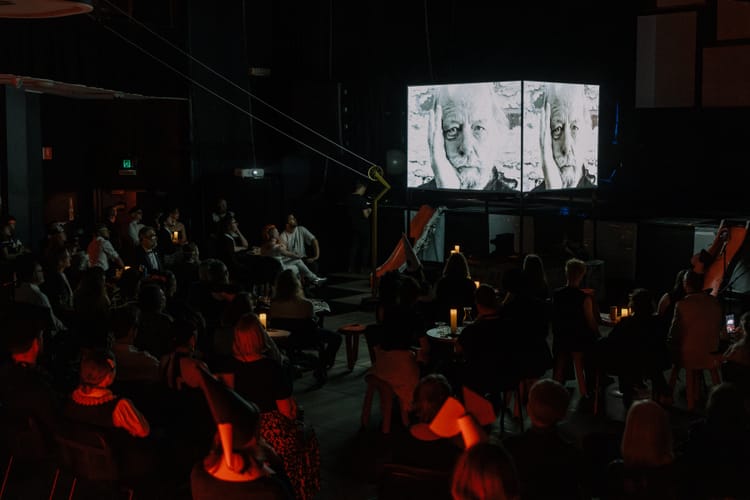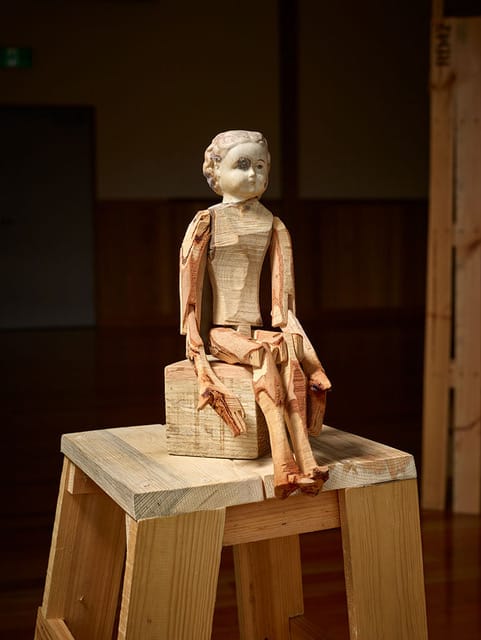Vicious circles and a guest writer | August 2023
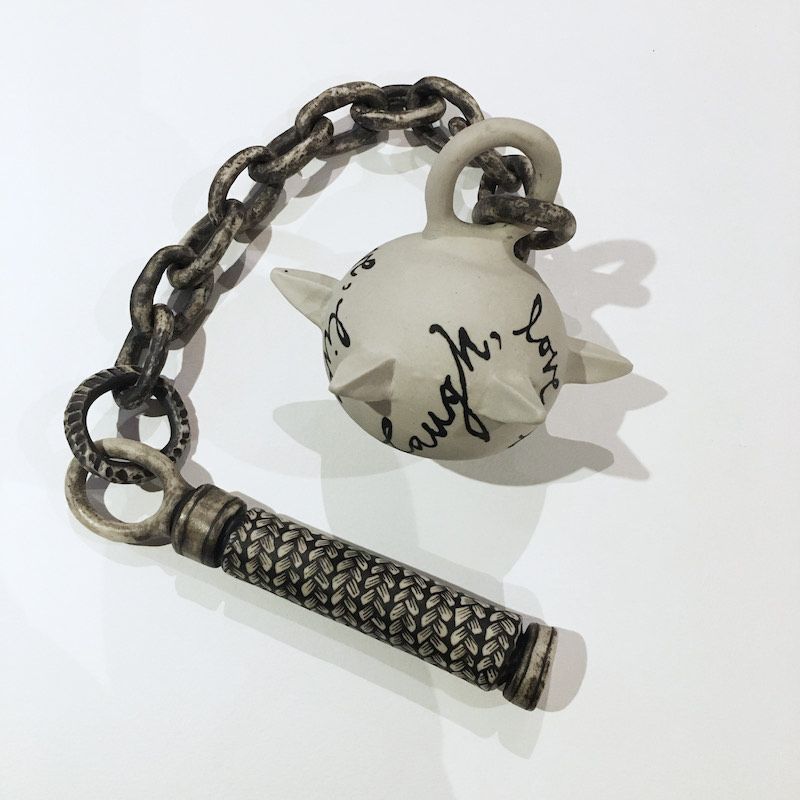
Welcome to the second Make and Do.
This one’s a little different to the first, and that’s part of how Make and Do will work: we’re going to keep shifting it around slightly, trying different things and looking at what works.
There’s more writing this time, including our first piece by a guest writer: the most excellent Loren Kronemyer. Loren went to Contemporary Art Tasmania to experience the opening event for Willoh Weiland’s Gift Trilogy. This excellent discussion is, I guess you’d say, the lead review this time around. Alongside this are some shorter pieces that are more sketches and notes of my thoughts about some exhibitions I really enjoyed, for whatever reason.
A few thanks:
Massive thanks to Pip Stafford for most excellent technical and production work; this enterprise would not exist without Pip.
Finally, an immense thank you to all the people who have taken out a paid subscription. I want this project to be sustainable, and I want to pay other writers too. Everyone who has supported Make and Do is awesome though, and I’m pretty humbled and amazed by all the people who have joined in so far.
There’s more writing and more content to come; please forward this to anyone who could enjoy it, subscribe if you haven’t, and let me know of new art that’s on the horizon. There is simply more art than one could imagine occurring in Tasmania, and I’d like to get to it all, eventually.
The first episode of the Make and Do podcast is coming very soon, so keep your eye out for that - it's a belter.
See you in September
Andrew
VICIOUS CIRCLES
Icky Brothers and Rosanagh May
Good Grief Studio
28 July – 20 August
This show is just good fun, and sometimes that’s about the best thing an art show could be. I’m going to really out myself as a role-playing game loving fantasy dork here but I am such a thing and I wish I had more time for such stuff (anyone want to do an art show and do live RPGing and say it’s art?). Vicious Circles had this great vibe where I thought it was kind of the remnants of a goblin feast in a dank dungeon. The candles and chains that were laid about brought this right out, but so to did the weird heads made by Icky Brothers attached to wall staring out over a long table, and there were flails, even. I thought at one point if I touched the wrong the thing the heads might start talking and the dogs would give me the eye.
Which is all a bit ridiculous I know, but everything in this show was so animated and lively I just couldn’t stop grinning and letting my imagination run riot; art that sparks actual joy and fun like this is something I don’t quite see enough of. Icky Brothers and Rosanagh May are both really strong ceramics makers, and exciting because they have both really nailed down their own vernaculars when it comes to what they make. The work is fun, but even better it all fits together really well, making the exhibition proper feel like it was carefully constructed to be one big complex thing.
I have no idea if Icky and Rosanagh like to roll dice and talk about spell casting and talking dogs or suchlike, but that’s the vibe I ended up getting from their work, alongside a poetic element and a kind of punky energy. I guess I just loved how much character is on display here – the art is really distinct, feeling like I’m peering into a special world that could only be made by these two artists.
Shows like this are hard to categorise in some ways, and it’s great that Good Grief exists to give something like Vicious Circles a space to be seen. This sort of exhibition is something that Good Grief does exceptionally well, and for that, and everything else this space manages to make happen, I am grateful. Good Grief fills an important niche in Tasmanian art; giving room to new artists who do crazy fun nerdy poetic stuff like this is super important.

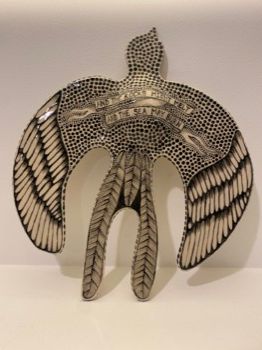
Images: (left and right) Icky Brothers, Live, Laugh, Love, 2023; (center) Rosanagh Maybird, learning to fly, 2023.
GIFT TRILOGY
Willoh S Weiland
Contemporary Art Tasmania
15 July - 19 August 2023
Guest writing by Loren Kronemyer
When I ask someone if they plan on going to the opening at Contemporary Art Tasmania, they respond: "Absolutely, I hear they have jelly slice." As I enter Gift Trilogy by Willoh Weiland, I step through a side door at Contemporary Art Tasmania. The building's private administration offices have been transformed into a bustling HQ for the Lindisfarne Country Women's Association. An old stereo plays a Legends compact disk, a folding table heaves with sponge cake, brownies, and the notorious raspberry jelly slice, which I overhear is "particularly delicate". Another office displays a table of CWA knitwear, crochet work, and crockery. Rumor spreads that these wares are not for sale, to avoid to the potential faux pas of the Lindisfarne CWA profiting on Hobart CWA's turf. I look up the Country Women's Association, and read that they identify as "the largest group of adult women in the world", a volunteer organisation known for community fundraising via the currency of tea and scones.
The power of the female volunteer workforce is evident. Once the final touches are complete in the gallery, the audience is admitted. As I ascend the stairs, I am stopped by a pair of CWA volunteers who ask me to chaperone them into the dark space. Unlike the rest of the nipaluna arts main characters in attendance, these particular ladies don’t feel intrinsically comfortable navigating the gallery experience on their own. I gladly oblige them, and we enter to find ourselves boxed into the middle of a large four-channel projection, which looms in austere contrast to the bunting and flowers of the preceding rooms. On display here is a trilogy of Weiland's video works, commissioned from 2019 to 2023, representing a deep digression into film for an artist most known for her exuberant live work.
Chant (2023) is the first video to play through in full. I first encountered this film at MONA FOMA Festival 2023, where curator Emma Pike transformed the Launceston TAFE-campus into an advent calendar of immersive installation and video artworks tucked behind quotidian classroom doors. Chant is a four-channel firing squad of a film, where teams of skilled young femme boxers, bodybuilders, drill dancers, and cheerleaders face off against us and each other. Accompanied by feminist protest chants, the camera lingers on the armour of high ponytails, swinging white boots, rhinestones, and Lucite heels, while also giving generous space to the expressions of strength, fierceness, and vulnerability worn by the athletes. I am reminded of Tarryn Gill and Pilar Mata Dupont’s 2011 work Stadium at the Perth Institute of Contemporary Art, and of the cinematography of Erynn Patrick and Melissa Langer on the Netflix show Cheer. I connect with one of my CWA charges, who asks me: “What is the message?”. I tell her that I read how Weiland’s subjects are all members of the female volunteer labour workforce, and she tunes in attentively.
Next the curtain rises on Visions, originally commissioned for the 2020 Adelaide Biennale of Australian Art curated by Leigh Robb. The subject is a dignified woman in an orange Chanel suit and long string of pearls, who stares down the barrel of the camera unflinchingly. Voice-overs narrate this portrait, with comments like “she was a very handsome woman” and “she was known for her unnatural, god-like powers”. Eventually, it becomes clear that these voices are those of volunteer docents at the Art Gallery of South Australia, touring highlights from the permanent collection. The woman on screen is their spokesperson, the final boss of the arts-admin-lady archetype. In her interview voiceover, she describes herself as a performer, who has found renewed visibility in working with the public. She is the gatekeeper, tasked with guiding the public through their experience of the gallery. Eventually, the camera pans backwards to reveal her delightful handbag and shoes before the curtain falls. Of the three films, this one most successfully untangles the ribbons of power, visibility, and history that wrap Gift Trilogy. In a moment of surreal recognition, I realise I am now a female volunteer docent, leading other female volunteers through their experience of an artwork about the labour of female volunteer docents.
As the final film begins, my small tour group is getting restless. Lick Lick Blink, originally commissioned for The National 2019 at the Museum of Contemporary Art by Anna Davis and Clothilde Bullen, positions the viewer in front of a theatre full of elder women. They shift through expressions of serenity, then disgust, then hedonism and rage. One of my CWA ladies asks me: “if they are celebrating volunteers, why are they showing their breasts?” I triangulate that the audience for this artwork originally received bespoke, breast-shaped choc-tops made by Messina Gelato, a prop which is missing in this context.
As a micro-survey show of Weiland’s recent oeuvre, Gift Trilogy reflects the artist’s devotion to collaboration, cooperation, and the biggest c-word of all: community. The notion of “community” has taken on an alienating significance of its own in the contemporary art lexicon. The sought-after token of working with a community can sometimes obfuscate the fact that we are all part of many communities, and conversely, that community involvement is not synonymous with moral purity. Most interesting in this work is Weiland’s commitment to film as a medium. Of particular note is her collaboration with Sandy Sissel, a respected cinematographer who migrated to Tasmania after 30 years working in documentary and feature films in Hollywood, and the brilliant cinematographer and editor Ursula Woods.
I heard a saying recently: if you want sometime done right, give it to a busy woman to do. Weiland is a busy woman. In observing institutions that are propped up by volunteer female labour, Weiland does not settle for convenient narratives that reduce that work to moral or aesthetic absolutes. For every smiling face on screen, there is also a sneering one. For every woman depicted appreciating her position of power, there is an implied footnote questioning over whom that power is wielded, and who benefits from a social economy based on unpaid labour. We exit the screening room to sip tea out of delicate cups on a saucers. I ask one of my CWA friends what she thought, and she replies “It felt independent and feminine.”
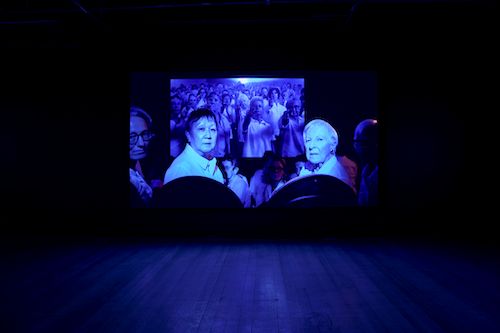
Image: Willoh S Weiland, Lick Lick Blink, Gift Trilogy installation view, 2023. Photo: Remi Chauvin.
Some thoughts on FIGMENT
Jo Chew, Amber Koroluk-Stephenson
Curated by Eliza Burke and Maria Kunda
Lady Franklin Gallery
...Figment was something like, if such a thing can be said to exist, a perfect exhibition.
~ This is a paid content preview. Already a subscriber? Your full copy will be available for you in your email inbox and on the Make and Do website. ~
